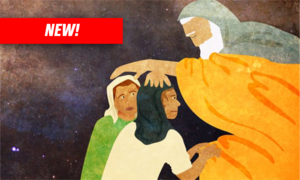Sicha, 10th of Teves 5743
A. The Day the Suffering Began
On the 10th of Tevet, Nebuchadnezzar laid siege to Jerusalem (Source 1). The prophet Ezekiel, who was in distant Babylon, prophesied that on that very day, “The king of Babylon drew close to Jerusalem” (Source 2). Maimonides and Aruch HaShulchan explain that we fast on the 10th of Tevet because it marks the beginning of all the calamities. (Source 3)
The Rebbe notes that all subsequent tragedies—such as the destruction of the Temples and the long exile—are rooted in the 10th of Tevet. Thus, this fast is considered the most severe (according to the Abudraham), as it is the source of all the fasts and it marks the cause of the exile.
B. The External Threat Brought Unity
Since it is G-d’s way to provide a cure before the affliction, behind the siege must have been hiding a remedy for exile, a path forward. How?
Nebuchadnezzar’s siege on Jerusalem fostered unity among its inhabitants. With no place to go, they encountered each other daily, forging connections. Therefore, the moment that marked the beginning of future troubles also contained the solution: the unity of the Jewish people, which could annul the exile.
This explains the unusual phrasing, “The king of Babylon drew close,” using a term that implies support. In a sense, Nebuchadnezzar helped the Jewish people by encouraging unity.
However, Jews have free choice, and they chose to create a superficial unity instead, leading to the eventual destruction.
The lesson for us: The way to terminate the exile is through unity.
C. Unity with Whom?
The prophet Ezekiel foretells that in the future, the two kingdoms—Judah and Israel—will unite, leading to redemption (Source 4). During Ezekiel’s time, the Kingdom of Israel was in a dire spiritual state, rife with idol worship. Yet, the prophet declares that unity with them is essential for redemption!
This principle is even more applicable today, when many Jews are estranged from Jewish life due to their status as “captured children.” We must strive to unite with them by bringing them closer to Torah and mitzvot, thereby hastening the redemption.






